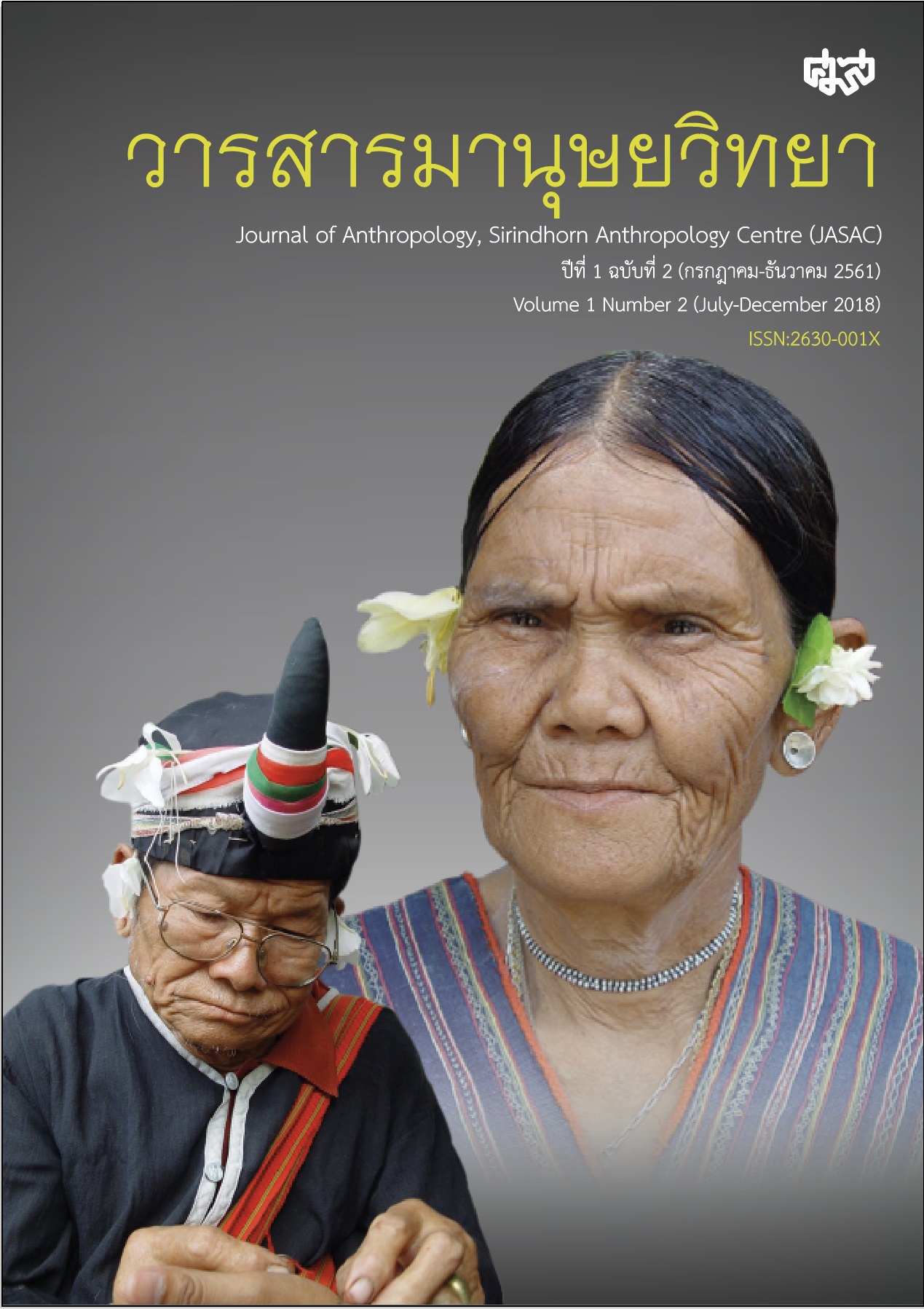“พัดทดน้ำ” : “การต่อรอง” ในบริบทนิเวศวิทยาการเมือง
Main Article Content
บทคัดย่อ
บทความเรื่องนี้มีวัตถุประสงค์เพื่อศึกษาการปรับตัวต่อการทำพัดทดน้ำของคนท้องถิ่น และการใช้พัดทดน้ำเป็นเครื่องมือในการต่อรองในความสัมพันธ์ต่าง ๆ ของชุมชน พื้นที่ศึกษาคือบ้านนาหมูม่น ซึ่งตั้งอยู่ในลุ่มน้ำหมันตอนปลาย อำเภอด่านซ้าย จังหวัดเลย งานวิจัยเรื่องนี้ประยุกต์ระเบียบวิธีวิจัยประกอบด้วยการสังเกตการณ์อย่างมีส่วนร่วม การสัมภาษณ์เชิงลึกและการสัมภาษณ์แบบกลุ่ม ผลการศึกษาพบว่า ชาวบ้านเรียนรู้และปรับตัวต่อการทำพัดทดน้ำอย่างมีนัยยะสำคัญกับการเปลี่ยนแปลงของชุมชนและระบบนิเวศลุ่มน้ำหมัน และยังใช้เป็นเครื่องมือต่อรองในความสัมพันธ์ต่าง ๆ ทางสังคม ด้วยจุดมุ่งหมายที่ต่างกัน กล่าวคือ มิติเครือญาติ พัดทดน้ำสืบทอดผ่านสายตระกูล การแต่งงาน และระบบการ “เอาแฮง” จากเพื่อนบ้าน มิติชุมชน กลุ่มท้าพัดทดน้ำใช้เป็นเครื่องมือต่อรองกับรัฐและเพื่อนบ้านและมิติทางสังคม พัดทดน้ำทำให้เกิดการรวมคนท้องถิ่นและภาคส่วนต่าง ๆ ร่วมขับเคลื่อนศูนย์เรียนรู้พัดทดน้ำ จนนำไปสู่การเรียนรู้ระบบนิเวศลุ่มน้ำหมันและพัดทดน้ำ
Article Details

อนุญาตภายใต้เงื่อนไข Creative Commons Attribution-NonCommercial-NoDerivatives 4.0 International License.
ลิขสิทธิ์@ของวารสารมานุษยวิทยา
ศูนย์มานุษยวิทยาสิรินธร (องค์การมหาชน), กรุงเทพฯ, ประเทศไทย
ข้อมูลเพิ่มเติม:
https://creativecommons.org/licenses/by-nc-nd/4.0/


